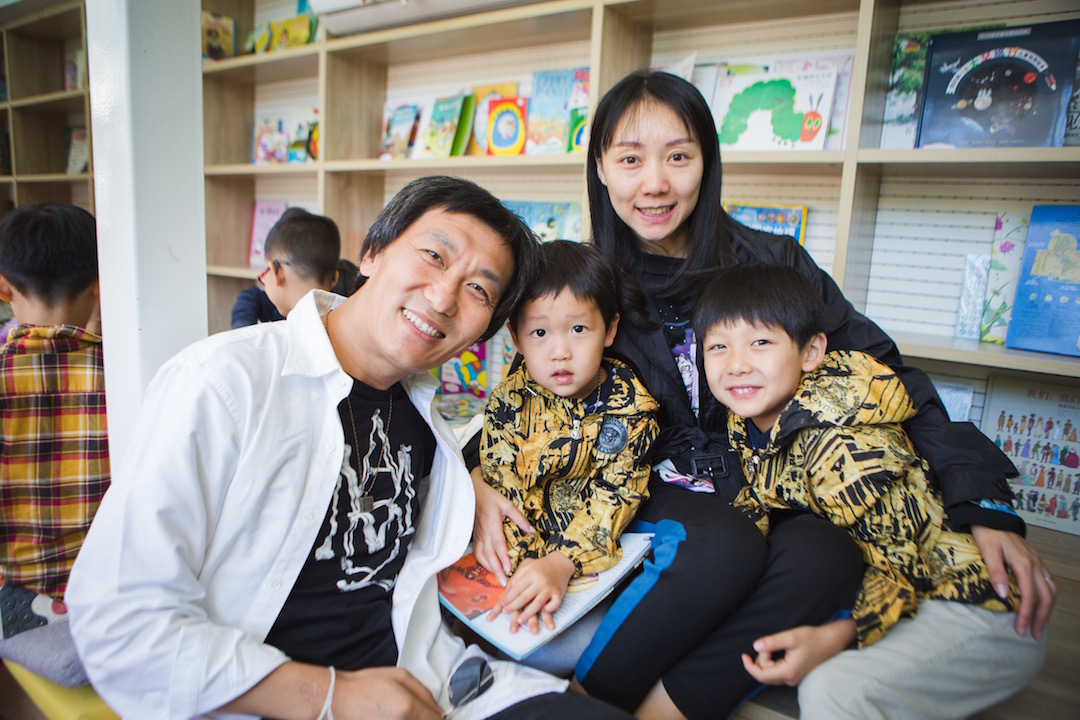Stories of 84000: Wang Lang
Wang Lang—often called Twenty by sangha—is an 84000 Team Member in China, and has been instrumental in helping us to organize events as well as to develop our outreach amongst the Chinese-speaking world through the launch and maintenance of our WeChat account. Ever willing to offer her help, Twenty’s kindness and insights into how to improve our reach are always so appreciated. Incredibly humble, Twenty—with her husband, Thirty—are both Founding Sponsors and sūtra sponsors. Here she talks about how she became interested in 84000, why she generously supports the translation of sūtras into English, and the importance of translating the words of the Buddha for the next generation.

It was not until I turned 28 years old that I began to really think about my relationship with the world: I urgently wanted to know “where I was going,” but felt very lost at heart.
After the massive earthquakes in Wenchuan in 2008, I was suddenly inspired to write out The Heart Sūtra, The Diamond Sūtra, and the Daodejing by hand. I have always liked the Daodejing most because I found that the two sūtras were sometimes difficult to understand, and to pronounce!
A few months later, a friend sent me a collection of audio files that she had serendipitously received. When I opened them, I found a set of teachings on The Heart Sūtra and The Diamond Sūtra. These mp3 files became my only source of spiritual fuel that spring and summer, and I spent a lot of time each day listening to them—sometimes feeling jubilant, and at other times my eyes filling with tears. The words resonated strongly with me in a way that was unprecedented. To finally find affirmation in the feeling “there’s something wrong with life” was an immense release. I asked my friend whose voice it was on the audio teachings, and it took me several times of intentionally writing his name before I could remember it: Dzongsar Jamyang Khyentse Rinpoche.
My life was so fundamentally changed by Rinpoche’s teaching, and it was like this that I embarked on the Way of the Buddha, continuing my sprightly steps of learning till today. In the vast, meritorious 84,000 methods which comprise the teachings of Buddha’s body, speech, and mind, I can truly say that I entered the Dharma through the blessings of the Buddha’s speech. So when I first met Rinpoche in 2010 and heard about “84000: Translating the Words of the Buddha” and its origins, I had to hold back my tears.
In many classic sūtras, the Buddha taught that whoever merely reads and recites the sūtras will have boundless merit and virtue. Therefore, translation of the Buddha’s words—into any language—should naturally be great news to us all. Yet Buddhist sūtras and texts have never been systematically circulated in the English-speaking world. It is because of this that English translations of the sūtras are so essential to the people in those parts of the world. Though I come from the Chinese-speaking world, I do not think that it will only be meaningful to me when we translate the sūtras into Chinese. But to me personally, when the Buddha’s wisdom appears in a language with which I am comfortable, it feels both euphoric and refreshing. I deeply wish and hope that everyone might know such joy.
In any case, as of now, not many of the young people in China can read ancient Chinese literature. Perhaps in 30 to 50 years, our future generations will choose to give up the difficult ancient texts, and turn to sūtras in English that they may find easier to understand. From this perspective, the English sūtras that 84000 is providing will also be a huge blessing to China’s future generations.
Materialism and information technology has given this new generation great convenience, and at the same time, the accompanying explosion of high-speed information and entertainment has a tendency to reduce the amount of time people spend on introspection. This is my worry for the ‘future’ generation. But, based on my humble knowledge, it is precisely this that makes the teachings and wisdom of the Buddha all the more significant.
As a mother of two children, I am rather preoccupied with the idea of education. On one hand, I see shortcomings and vices everywhere: utilitarian and training-based education, fast-food culture, and myopic development. On the other hand, I do not have the courage to challenge the system, adhere to tradition, and let my children run the risk of being disconnected from the world.
One day, in Nepal, I shared my worries with Rinpoche. He told me that though we are certainly unable to know if we have made the right decisions for our children, due to causes and conditions we need only to persist in Buddhist practice to ensure that our children will not stray far from the wisdom of the Dharma. From then on, every time I feel worried and off-centre, I remind myself of Rinpoche’s teaching and check my motivations.
So as parents, even when we feel conflicted and hesitant, one thing we can pursue with courage is to create connections and pray that one day our children will receive the guidance of the Dharma. For this reason, I also have a more selfish wish with regard to 84000: I hope my involvement in 84000 may create good causes and conditions for my children, and know that this would be far more beneficial than any kind of worldly education.

Posted: 16 Dec 2018
